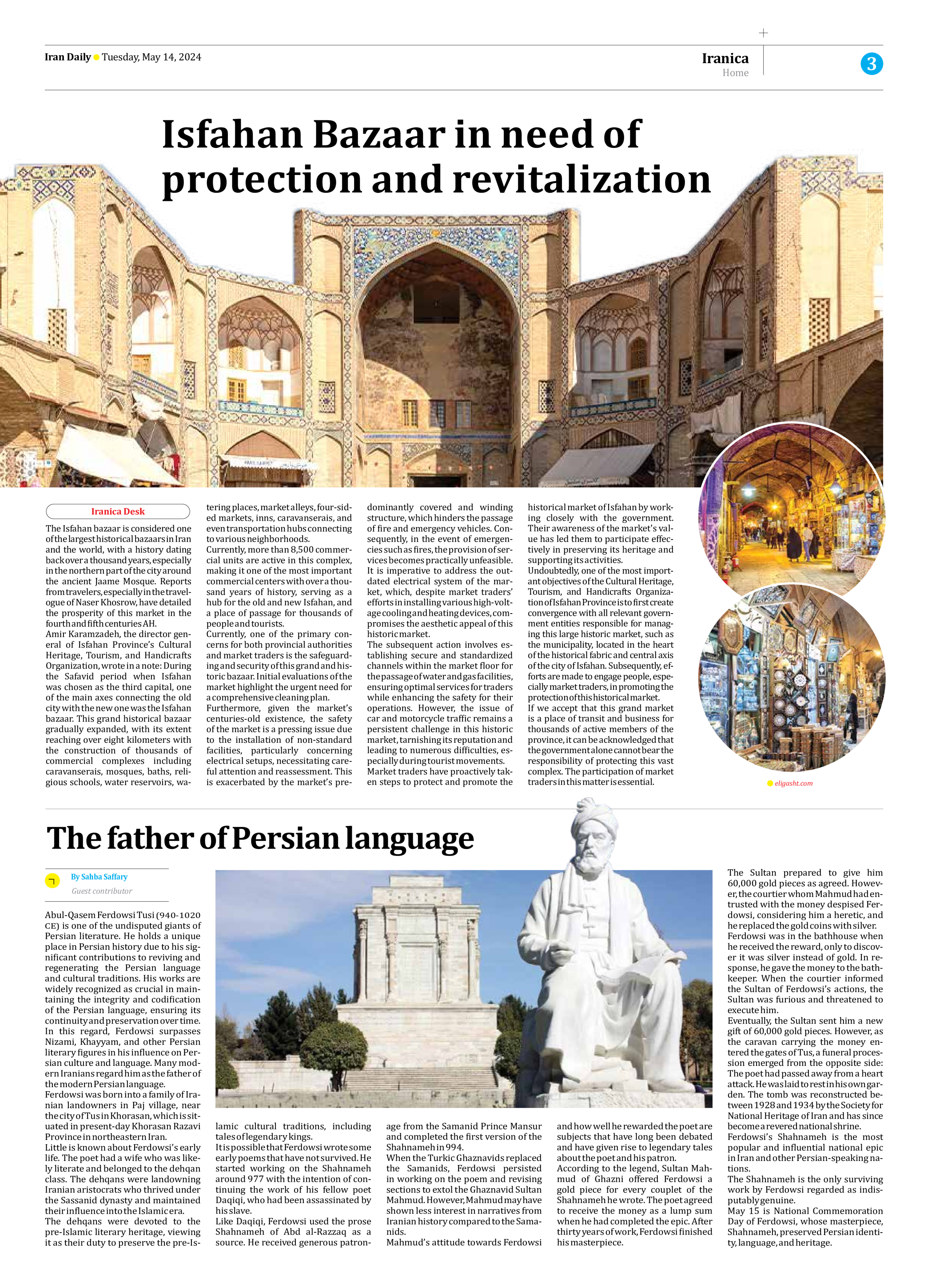
The father of Persian language
Abul-Qasem Ferdowsi Tusi (940-1020 CE) is one of the undisputed giants of Persian literature. He holds a unique place in Persian history due to his significant contributions to reviving and regenerating the Persian language and cultural traditions. His works are widely recognized as crucial in maintaining the integrity and codification of the Persian language, ensuring its continuity and preservation over time.
In this regard, Ferdowsi surpasses Nizami, Khayyam, and other Persian literary figures in his influence on Persian culture and language. Many modern Iranians regard him as the father of the modern Persian language.
Ferdowsi was born into a family of Iranian landowners in Paj village, near the city of Tus in Khorasan, which is situated in present-day Khorasan Razavi Province in northeastern Iran.
Little is known about Ferdowsi’s early life. The poet had a wife who was likely literate and belonged to the dehqan class. The dehqans were landowning Iranian aristocrats who thrived under the Sassanid dynasty and maintained their influence into the Islamic era.
The dehqans were devoted to the pre-Islamic literary heritage, viewing it as their duty to preserve the pre-Islamic cultural traditions, including tales of legendary kings.
It is possible that Ferdowsi wrote some early poems that have not survived. He started working on the Shahnameh around 977 with the intention of continuing the work of his fellow poet Daqiqi, who had been assassinated by his slave.
Like Daqiqi, Ferdowsi used the prose Shahnameh of Abd al-Razzaq as a source. He received generous patronage from the Samanid Prince Mansur and completed the first version of the Shahnameh in 994.
When the Turkic Ghaznavids replaced the Samanids, Ferdowsi persisted in working on the poem and revising sections to extol the Ghaznavid Sultan Mahmud. However, Mahmud may have shown less interest in narratives from Iranian history compared to the Samanids.
Mahmud’s attitude towards Ferdowsi and how well he rewarded the poet are subjects that have long been debated and have given rise to legendary tales about the poet and his patron.
According to the legend, Sultan Mahmud of Ghazni offered Ferdowsi a gold piece for every couplet of the Shahnameh he wrote. The poet agreed to receive the money as a lump sum when he had completed the epic. After thirty years of work, Ferdowsi finished his masterpiece.
The Sultan prepared to give him 60,000 gold pieces as agreed. However, the courtier whom Mahmud had entrusted with the money despised Ferdowsi, considering him a heretic, and he replaced the gold coins with silver.
Ferdowsi was in the bathhouse when he received the reward, only to discover it was silver instead of gold. In response, he gave the money to the bathkeeper. When the courtier informed the Sultan of Ferdowsi’s actions, the Sultan was furious and threatened to execute him.
Eventually, the Sultan sent him a new gift of 60,000 gold pieces. However, as the caravan carrying the money entered the gates of Tus, a funeral procession emerged from the opposite side: The poet had passed away from a heart attack. He was laid to rest in his own garden. The tomb was reconstructed between 1928 and 1934 by the Society for National Heritage of Iran and has since become a revered national shrine.
Ferdowsi’s Shahnameh is the most popular and influential national epic in Iran and other Persian-speaking nations.
The Shahnameh is the only surviving work by Ferdowsi regarded as indisputably genuine.
May 15 is National Commemoration Day of Ferdowsi, whose masterpiece, Shahnameh, preserved Persian identity, language, and heritage.







